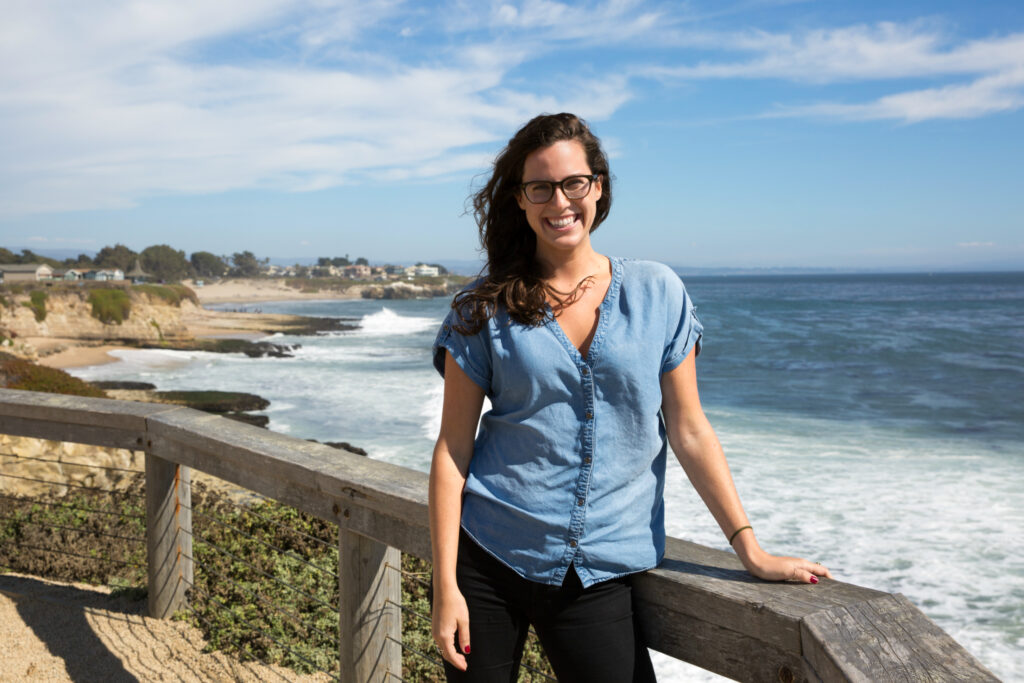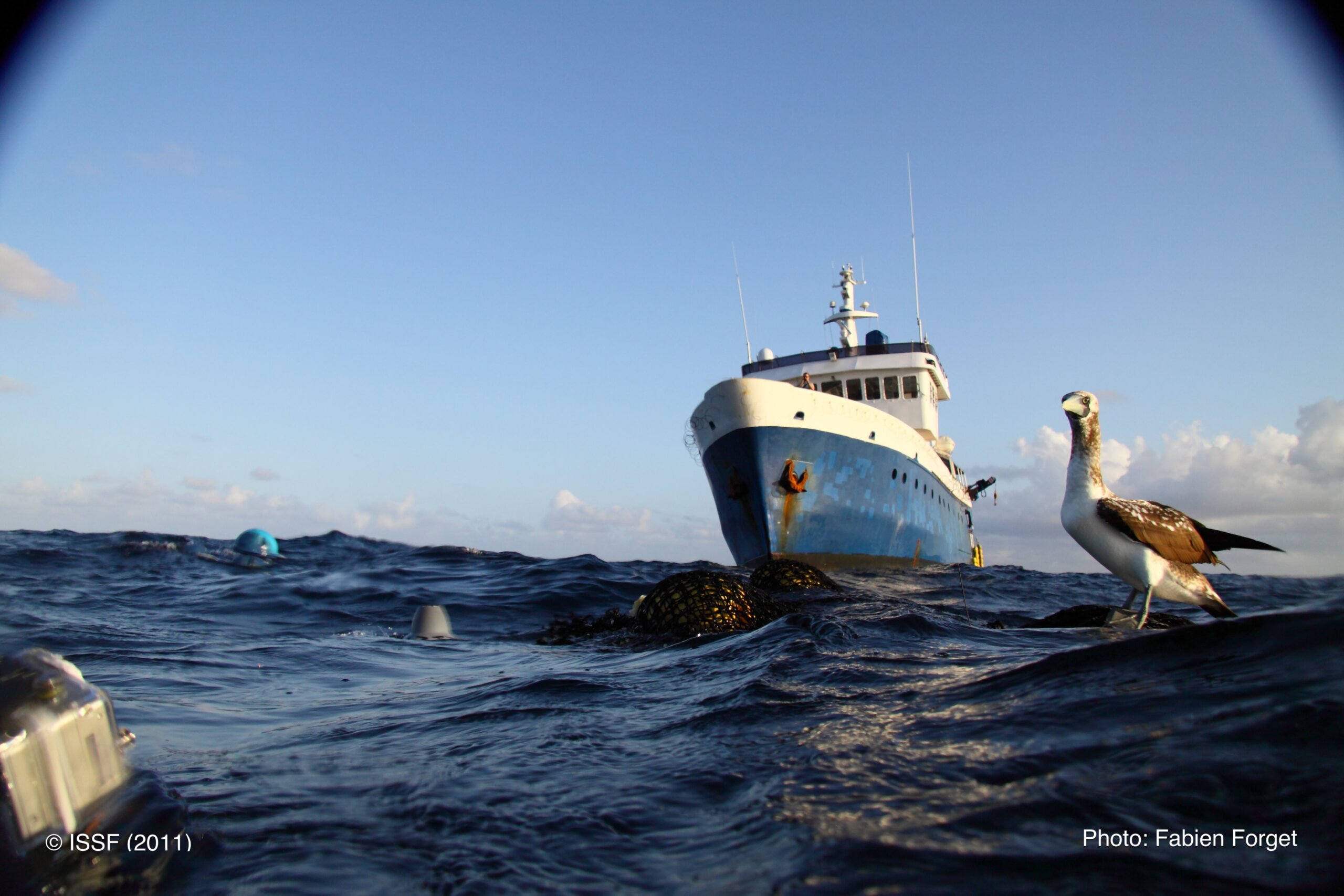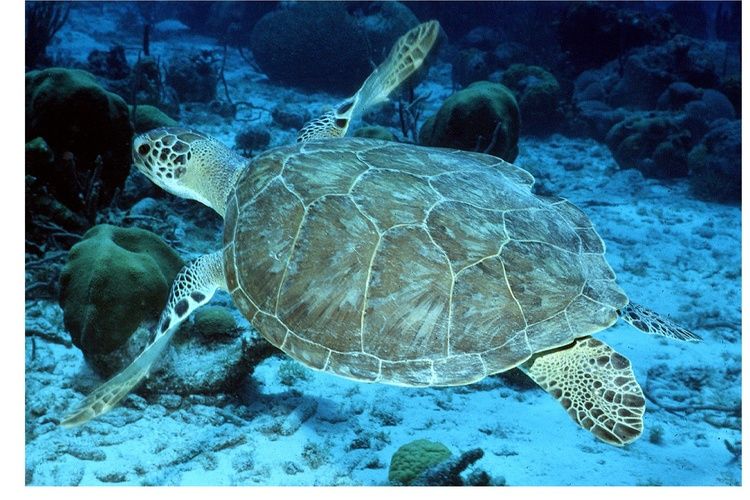
ISSF Awards Grand Prize in Seafood Sustainability Contest
Doctoral student Melissa Cronin of the University of California, Santa Cruz, is the Grand Prize winner in ISSF’s International Seafood Sustainability Foundation (ISSF) Seafood Sustainability Contest. She receives a $45,000 prize from ISSF for her contest entry, “Incentivizing Collaborative Release to Reduce Elasmobranch Bycatch Mortality,” which proposes handling-and-release methods that purse-seine vessel skippers and crew can use to reduce the mortality of manta rays and devil rays incidentally caught during tuna fishing.
Congratulations to our #Seafood #Sustainability Contest winners Melissa Cronin and Guillermo Ortuno Crespo. Share on X
Her winning proposal calls for cooperative workshops with purse-seine skippers and observers, offering financial rewards for the design, testing, and onboard implementation of feasible, scalable techniques for safely removing rays from vessel decks.
It also includes training observers in tagging rays to track their post-release survival. Rays, in addition to sharks, are the species groups most vulnerable in the purse-seine fishery. In the Indian Ocean, for example, rays comprise the majority of bycatch in tuna fishers’ free-school sets: bycatch overall on such sets represents 0.9% of the total catch, and 34% of that is rays.
Ms. Cronin is a Ph.D. candidate in the Conservation Action Lab at UC Santa Cruz studying Ecology and Evolutionary Biology. Learn more about her research experiences and winning idea in her ISSF blog post and video.
In addition to the $40,000 Grand Prize, the award includes a trip, with an estimated $5,000 value, to a tuna event. ISSF will arrange for Ms. Cronin to present her proposal at a Regional Fisheries Management Organization (RFMO) event this year.
Winning Proposal Builds on ISSF Scientist-Fisher Collaboration
Dr. Victor Restrepo, ISSF Vice President, Science and Chair of the ISSF Scientific Advisory Committee (SAC), led the contest’s judging panel. “Through this competition, we’re pleased to reward promising research ideas from up-and-coming marine and fisheries scientists,” he commented. “Ms. Cronin’s thoughtful proposal is based on collaborative problem-solving between fishers and scientists — a successful model ISSF follows in our Skippers Workshops worldwide. Our workshops have focused on finding new approaches in tuna fisheries to protect sharks and other non-tuna species, for example.”
The judging panel evaluated contest entries on the following criteria: originality, conservation impact, impact on skipjack catches, degree to which idea has been tested, feasibility of industry-wide implementation, and cost effectiveness. In addition to Dr. Restrepo, the panel included Dr. Josu Santiago, AZTI; Dr. Laurent Dagorn, Institut de Recherche pour le Développement (IRD); Dr. Gala Moreno, ISSF Science Consultant; and Miguel Herrera, OPAGAC Scientist.
Runner-Up Prize Winning Entry Focuses on Oceanic Sharks
Guillermo Ortuno Crespo, a researcher at the Marine Geospatial Ecology Lab at Duke University, receives a $10,000 prize as the contest Runner-up Winner for his proposal, “Dynamic Habitat Predictions of Two Bycaught Oceanic Shark Species.” His proposal focuses on predicting the dynamic, spatial distribution of non-target and sometimes target species based on their environmental preferences.
Mr. Crespo’s study explores the dynamic habitats of Carcharhinus longimanus and C. falciformis in the Inter-American Tropical Tuna Commission (IATTC) region, to help predict where fisher-shark bycatch interactions are likely to occur.
The ISSF Seafood Sustainability Contest commemorated ISSF’s first “Decade of Discovery” (2009-2019), which has been marked by productive partnerships with marine scientists, seafood companies, vessels, Regional Fisheries Management Organizations (RFMOs), charitable foundations, retailers, and fellow NGOs.


